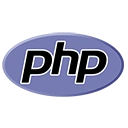Welcome to the world of PHP! PHP is a versatile scripting language used for web development and beyond. In this guide, we'll cover the fundamental syntax basics, including variables, data types, and operators. Whether you're new to programming or transitioning to PHP from another language, this guide will help you understand the core building blocks of PHP.
1. Introduction to PHP Syntax
Let's start by understanding the basics of PHP syntax and its role in web development.
2. Variables and Data Types
Variables are used to store data in PHP. Let's explore how to declare variables and work with different data types.
a. Variable Declaration
Learn how to declare variables and assign values to them in PHP.
$name = "John";
$age = 30;
b. Data Types
Explore PHP's data types, including strings, numbers, booleans, arrays, and more.
$name = "John"; // String
$age = 30; // Integer
$isStudent = true; // Boolean
$colors = ["red", "green", "blue"]; // Array
3. Operators
Operators in PHP are used to perform operations on variables and values. Let's dive into different types of operators.
a. Arithmetic Operators
Learn how to perform basic arithmetic operations in PHP.
$x = 10;
$y = 5;
$sum = $x + $y; // Addition
$difference = $x - $y; // Subtraction
$product = $x * $y; // Multiplication
$quotient = $x / $y; // Division
$remainder = $x % $y; // Modulus
b. Comparison Operators
Understand how to compare values in PHP using comparison operators.
$x = 10;
$y = 5;
$isEqual = ($x == $y); // Equal
$isNotEqual = ($x != $y); // Not Equal
$isGreater = ($x > $y); // Greater Than
$isLess = ($x < $y); // Less Than
c. Logical Operators
Explore logical operators to perform logical operations in PHP.
$x = true;
$y = false;
$andResult = $x && $y; // Logical AND
$orResult = $x || $y; // Logical OR
$notResult = !$x; // Logical NOT
4. Conclusion
You've now learned the basics of PHP syntax, including variables, data types, and operators. With this knowledge, you can begin writing PHP scripts and working on web development projects. To become proficient, practice, experimentation, and building real projects are key to mastering PHP.
This tutorial provides a solid foundation for understanding PHP syntax basics. To become proficient, further development, testing, and exploration of advanced PHP concepts and frameworks are encouraged.

